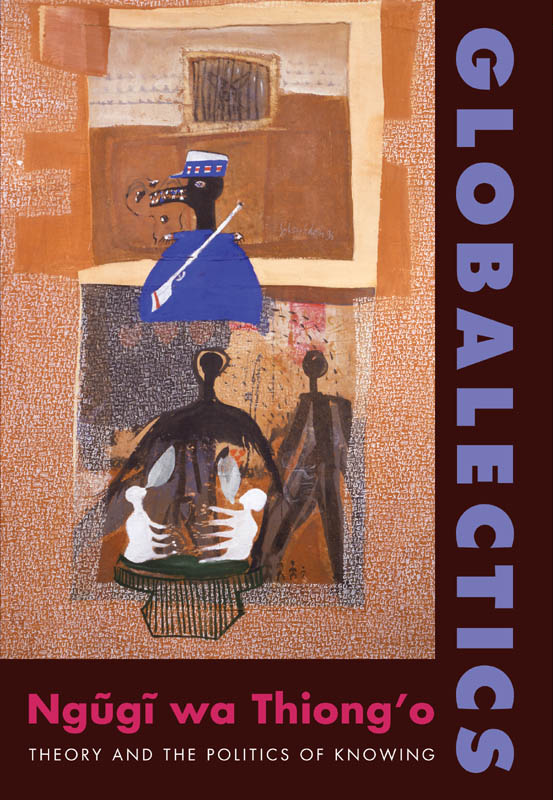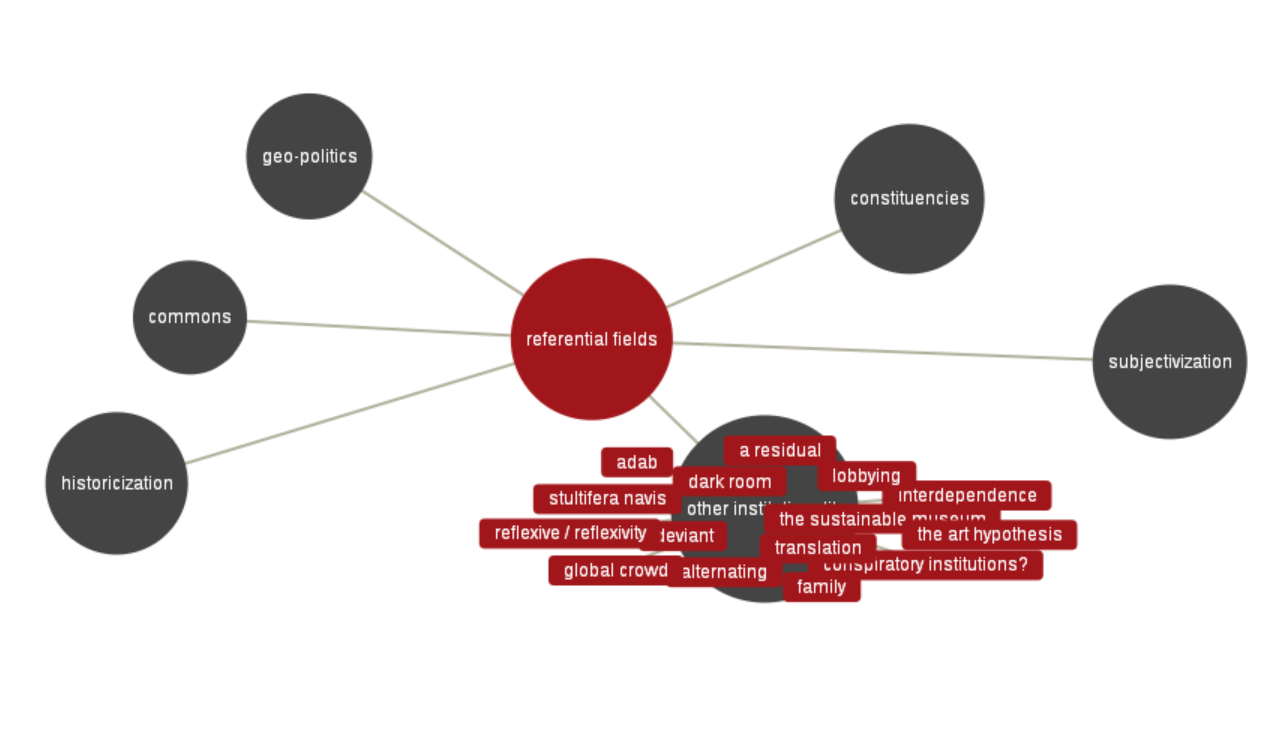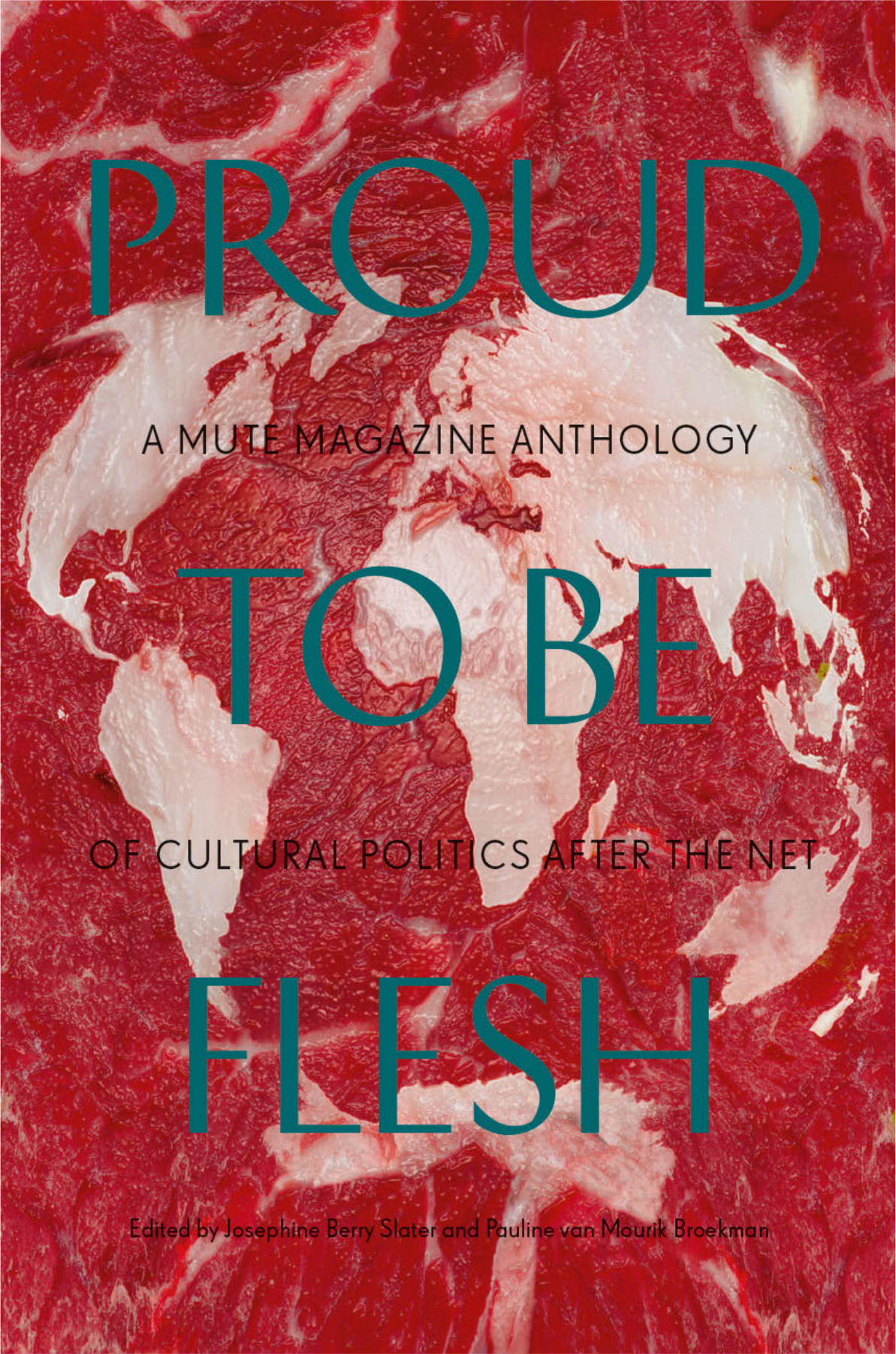Ngũgĩ wa Thiong’o: Globalectics: Theory and the Politics of Knowing (2012)
Filed under book | Tags: · africa, dialectic, globalisation, knowledge, literary criticism, literary theory, literature, neocolonialism, orality, politics, postcolonialism, theory

“A masterful writer working in many genres, Ngũgĩ wa Thiong’o entered the East African literary scene in 1962 with the performance of his first major play, The Black Hermit, at the National Theatre in Uganda. In 1977 he was imprisoned after his most controversial work, Ngaahika Ndeenda (I Will Marry When I Want), produced in Nairobi, sharply criticized the injustices of Kenyan society and unequivocally championed the causes of ordinary citizens. Following his release, Ngũgĩ decided to write only in his native Gikuyu, communicating with Kenyans in one of the many languages of their daily lives, and today he is known as one of the most outspoken intellectuals working in postcolonial theory and the global postcolonial movement.
In this volume, Ngũgĩ wa Thiong’o summarizes and develops a cross-section of the issues he has grappled with in his work, which deploys a strategy of imagery, language, folklore, and character to ‘decolonize the mind.’ Ngũgĩ confronts the politics of language in African writing; the problem of linguistic imperialism and literature’s ability to resist it; the difficult balance between orality, or ‘orature’, and writing, or ‘literature’; the tension between national and world literature; and the role of the literary curriculum in both reaffirming and undermining the dominance of the Western canon. Throughout, he engages a range of philosophers and theorists writing on power and postcolonial creativity, including Hegel, Marx, Lévi-Strauss, and Aimé Césaire. Yet his explorations remain grounded in his own experiences with literature (and orature) and reworks the difficult dialectics of theory into richly evocative prose.”
Publisher Columbia University Press, New York, 2012
Wellek Library Lectures in Critical Theory series
ISBN 9780231159500, 0231159501
xi+104 pages
Reviews: Publishers Weekly (2011), Corbin Treacy (Transnational Lit, 2012), Danson Kahyana (Slip, 2012), Geoff Wisner (Words Without Borders, 2012), M.A. Orthofer (Complete Rev, 2012), Jenna N. Hanchey (E3W Rev of Books, 2013), Devin Zane Shaw (Society+Space, 2013), Magalí Armillas-Tiseyra (E-Misférica, 2014), Oliver Lovesey (Cambridge J Postcolonial Lit Inquiry, 2014), Ndiritu Wahome (2016).
Comment (0)Glossary of Common Knowledge (2017)
Filed under book | Tags: · art theory, commons, contemporary art, geopolitics, glossary, history, politics, subjectivation, subjectivity, theory

The Glossary of Common Knowledge is a research project by MG+MSUM, Ljubljana, in the frame of L’Internationale, aiming to negotiate various positions, contexts and local narratives about contemporary art. The glossary entries were produced through six seminars (2014-17), each focusing on one selected referential field: historicization, subjectivization, geo-politics, other institutionality, and commons. The resulting website now functions as an open platform accepting new contributions.
Fields and terms:
Historicization: archive, constellation, emancipation, temporally embodied sound, estrangement, heterochronia, humanism, intuition, pathological fracture, phantom (pain), reconstruction, self-historicization, temporalities, tendencies in art, the contemporary.
Subjectivization: creleasure, dancing as insurrectional practice, decolonize, evidence, fragility, interest, kapwa, loser, over-identification, radical imagination, self-determination, self-representation, on subjectivization, the subject, travesti, unrest.
Geo-politics: agitational visual language, alignment, catastrophe, eurasia, event, global resistance, institutional geopolitical strategies, migrancy, non-aligned movement, pandemic, postsocialism, south, tudigong, god of the land, white space.
Constituencies: agency, autonomy, biotope, bureaucratisation, collaboration / co-labour, construction, the continuity-form and counter-continuity, de-professionalization, intervenor, labour, ñande / ore, the eternal network / la fête permanente, the rest is missing.
Commons: to baffle, basic income, the brotherhood & unity highway, constituent power of the common, corrected slogan, data asymmetry , friendship, heterotopian homonymy, institution, noosphere, palimpsest, rog, self-management, solidarity, theft.
Other institutionality: a residual, adab, alternating, conspiratory institutions?, dark room, deviant, family, global crowd, interdependence, lobbying, reflexive / reflexivity, stultifera navis, the sustainable museum, the art hypothesis, translation.
Curated by Zdenka Badovinac, Bojana Piškur and Jesús Carrillo (MNCARS) in collaboration with L’Internationale, et al
Publisher MG+MSUM, Ljubljana, 2017
HTML (on the website of MG+MSUM)
HTML (on the website of L’Internationale, added on 2020-4-12)
Seminar recordings structured by terms discussed
Proud to be Flesh: A Mute Magazine Anthology of Cultural Politics after the Net (2009)
Filed under book | Tags: · art criticism, art history, internet, london, media, media art, net culture, networks, politics, technology, theory

“In late 1994, back in the days of dial-up modems and Netscape Navigator 1.0, Mute magazine announced its timely arrival. Dedicated to an analysis of culture and politics ‘after the net’, Mute has consistently challenged the grandiose claims of the communications revolution, debunking its utopian rhetoric and offering more critical perspectives.
Fifteen years on, this anthology selects representative articles from the magazine’s hugely diverse content to reprise some of its recurring themes. This expansive collection charts the perilous journey from Web 1.0 to 2.0, contesting the democratisation this transition implied and laying bare our incorporeal expectations; it exposes the ways in which the logic of technology intersects with that of art and music and, in turn and inevitably, with the logic of business; it heralds the rise of neoliberalism and condemns the human cost; it amplifies the murmurs of dissent and revels in the first signs of collapse. The result situates key – but often little understood – concepts associated with the digital (e.g. the knowledge commons, immaterial labour and open source) in their proper context, producing an impressive overview of contemporary, networked culture in its broadest sense.
Proud to be Flesh features a mix of essays, interviews, satirical fiction, email polemics and reportage from an array of international contributors working in art, philosophy, technology, politics, cultural theory, radical geography and more.”
Edited by Josephine Berry Slater and Pauline van Mourik Broekman, with Michael Corris, Anthony Iles, Benedict Seymour and Simon Worthington
Publisher Mute Publishing, London, with Autonomedia, New York, 2009
ISBN 9781906496289, 1906496285
572+48 pages
Reviews: Nicholas Thoburn (New Formations), Charlotte Frost (Rhizome), Julian Stallabrass (New Left Review).
PDF, PDF (15 MB, updated on 2019-6-12)
Comment (0)
